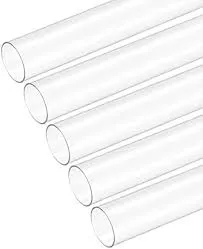නොවැ. . 20, 2024 02:28 Back to list
hdpe gas pipe
Understanding HDPE Gas Pipes Applications, Benefits, and Future Trends
High-Density Polyethylene (HDPE) gas pipes have gained significant attention and widespread use in the natural gas distribution industry due to their remarkable properties and advantages over traditional piping materials. Over the last few decades, HDPE has emerged as the preferred choice for many applications, driven by its superior flexibility, strength, and overall durability. This article will explore the characteristics of HDPE gas pipes, their applications, benefits, and what the future holds for this dynamic material.
Characteristics of HDPE Gas Pipes
HDPE gas pipes are manufactured from high-density polyethylene, a thermoplastic that is known for its high tensile strength and low weight. These pipes have a smooth inner surface, which minimizes friction losses and enhances flow efficiency. Moreover, HDPE is resistant to various chemicals and environmental stresses, making it suitable for use in diverse conditions. The flexibility of HDPE allows for easy installation, reducing the number of joints and fittings needed, which is crucial in minimizing potential leak points.
Applications
The primary application of HDPE gas pipes is in the distribution of natural gas. Their lightweight nature makes them easy to transport and handle, while their flexibility allows them to adapt to various terrains without the need for extensive excavation. Besides natural gas, HDPE pipes are also employed in the distribution of other gaseous fuels, including propane and butane.
In addition to utility applications, HDPE gas pipes are gaining traction in residential and commercial construction for gas supply systems. The pipes can be installed underground or above ground, providing versatility depending on site-specific conditions. Furthermore, they are increasingly being used in renewable energy applications, such as biogas distribution systems, as more sustainable energy solutions are sought.
Benefits of HDPE Gas Pipes
The benefits of using HDPE gas pipes are manifold. Here are some key advantages
hdpe gas pipe

1. Corrosion Resistance Unlike traditional metallic pipes, HDPE does not corrode, rust, or degrade over time, which enhances the lifespan of the piping system and minimizes maintenance costs.
2. Leak Prevention The seamless nature of HDPE pipes allows for continuous lengths, reducing the risk of leaks. In addition, HDPE’s flexibility offers resistance to ground movements, ensuring the integrity of the gas supply.
3. Environmental Impact HDPE is recyclable and requires less energy to produce compared to metal pipes. This positions HDPE as an environmentally friendly option in an era increasingly concerned with sustainability.
4. Cost-Effectiveness While the initial cost may be competitive, the reduced installation time and lower maintenance requirements contribute to significant savings over the lifespan of the infrastructure.
5. Safety HDPE pipes are designed to withstand high pressures, ensuring safe gas transportation. Their resistance to cracking and impact makes them dependable for use in various environments.
Future Trends
The future of HDPE gas pipes looks promising, driven by technological advancements and increasing regulatory support for more sustainable infrastructure. Innovations such as improved welding techniques and the integration of smart technologies for monitoring pipe conditions are expected to enhance the performance and reliability of HDPE systems further.
Additionally, as energy transition initiatives take precedence, the demand for HDPE pipes in renewable energy applications, such as biogas, is likely to increase. This shift will not only promote the use of cleaner energy sources but will also create new markets for HDPE products.
In conclusion, HDPE gas pipes represent a significant advancement in the field of gas distribution, boasting numerous benefits that address the demands of modern infrastructure. As the world increasingly focuses on sustainability and efficiency, HDPE will continue to play a vital role in shaping the future of energy transport. Its versatility, durability, and cost-effectiveness make it an indispensable choice for natural gas and other gaseous fuel applications.
-
Durable PP Rigid Sheet: Lightweight, Chemical Resistant Solutions
NewsAug.21,2025
-
PVC Grey Sheet for Extraction: Chemical Resistant & Durable
NewsAug.19,2025
-
Durable PVC Pipe Fittings for Plumbing & Irrigation Needs
NewsAug.18,2025
-
HDPE Steel Belt Reinforced Spiral Corrugated Pipe | High Strength
NewsAug.17,2025
-
HDPE Pipe Fittings: Durable, Leak-Proof Solutions
NewsAug.16,2025
-
Premium CPVC Sheet: High-Temp & Chemical Resistant Solutions
NewsAug.15,2025

